UN System at a Glance
The Secretary-General
The Secretary-General acts either personally or through his envoys in the interests of preventive diplomacy, peacemaking and peace-building in the region. He also represents the UN in the Middle East Quartet. The UN Special Coordinator for the Middle East Peace Process represents the Secretary-General in all matters related to the peace process.
.
The United Nations Economic and Social Council (ECOSOC)
 The Economic and Social Council (ECOSOC) is at the heart of the UN system to advance the three dimensions of sustainable development: economic, social and environmental. It is also responsible for the follow-up to major UN conferences and summits. ECOSOC is a gateway for UN partnerships and participation by civil society.
The Economic and Social Council (ECOSOC) is at the heart of the UN system to advance the three dimensions of sustainable development: economic, social and environmental. It is also responsible for the follow-up to major UN conferences and summits. ECOSOC is a gateway for UN partnerships and participation by civil society.
The General Assembly
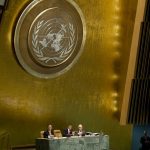
General Assembly
The General Assembly, comprised of all the Member States of the United Nations, has been involved in the quest for a peaceful settlement of the question of Palestine since 1947. The Committee on the Exercise of the Inalienable Rights of the Palestinian People was established by the Assembly in 1975.
Maintaining Peace and Security
The Security Council
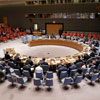 The Security Council has primary responsibility for the maintenance of international peace and security. The Council has addressed the situation in the Middle East and the Palestinian question on many occasions.
The Security Council has primary responsibility for the maintenance of international peace and security. The Council has addressed the situation in the Middle East and the Palestinian question on many occasions.
UNTSO
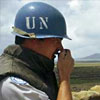 The United Nations Truce Supervision Organization (UNTSO) was authorised by the Security Council in Palestine in 1948, the first peacekeeping operation established by the UN.
The United Nations Truce Supervision Organization (UNTSO) was authorised by the Security Council in Palestine in 1948, the first peacekeeping operation established by the UN.
Safeguarding Human Rights
The Human Rights Council
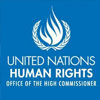 The Human Rights Council has addressed the situation in Palestine during its regular and special sessions. The Special Procedures of the UN Human Rights Council involve various independent human rights experts who monitor and report on human rights issues globally, including the situation in the occupied Palestinian territory. These experts gather information, engage with various stakeholders, and report their findings to the UN Human Rights Council, aiming to highlight concerns and recommend improvements. The mechanisms are intended to address both specific incidents and systemic issues affecting human rights in the occupied Palestinian territory.
The Human Rights Council has addressed the situation in Palestine during its regular and special sessions. The Special Procedures of the UN Human Rights Council involve various independent human rights experts who monitor and report on human rights issues globally, including the situation in the occupied Palestinian territory. These experts gather information, engage with various stakeholders, and report their findings to the UN Human Rights Council, aiming to highlight concerns and recommend improvements. The mechanisms are intended to address both specific incidents and systemic issues affecting human rights in the occupied Palestinian territory.
Providing Assistance, Promoting Development, Building Institutions
The UN Country Team (UNCT OPT) brings together over 20 UN agencies active on the ground, working in areas as diverse as refugees (UNRWA), education and culture (UNESCO), children (UNICEF), humanitarian issues (UNSCO, OCHA), gender (UN Women), development (UNDP), health (WHO), food and agriculture (FAO, WFP), housing (UN HABITAT), human rights (OHCHR), labour relations (ILO), population (UNFPA), unexploded remnants of war (UNMAS), drugs control (UNODC), and more. It includes:
UNRWA
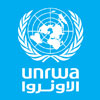 United Nations Relief and Works Agency for Palestine Refugees in the Near East (UNRWA) by far the biggest UN operation in the Middle East, provides education, health, relief and social services for over 5 million Palestine refugees in Jordan, Lebanon, the Syrian Arab Republic, Gaza and the West Bank, including East Jerusalem.
United Nations Relief and Works Agency for Palestine Refugees in the Near East (UNRWA) by far the biggest UN operation in the Middle East, provides education, health, relief and social services for over 5 million Palestine refugees in Jordan, Lebanon, the Syrian Arab Republic, Gaza and the West Bank, including East Jerusalem.
UNDP
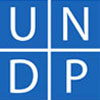 United Nations Development Programme/Programme of Assistance to the Palestinian People (UNDP/PAPP) has gained considerable experience through its decades of efforts to assist the Palestinian people.
United Nations Development Programme/Programme of Assistance to the Palestinian People (UNDP/PAPP) has gained considerable experience through its decades of efforts to assist the Palestinian people.
UNSCO

UNESCO
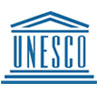 United Nations Educational, Scientific and Cultural Organization (UNESCO) Programme of Assistance to the Palestinian People is focused on education, science, culture and communication.
United Nations Educational, Scientific and Cultural Organization (UNESCO) Programme of Assistance to the Palestinian People is focused on education, science, culture and communication.
World Bank
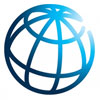 The World Bank provides financing for development projects, insurance for private investment, and plays a key role in donor coordination.
The World Bank provides financing for development projects, insurance for private investment, and plays a key role in donor coordination.
OCHA
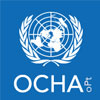 The United Nations Office for the Coordination of Humanitarian Affairs established a field office (OCHA-OPT) in 2000 to enhance coordination of humanitarian assistance and disseminate humanitarian information.
The United Nations Office for the Coordination of Humanitarian Affairs established a field office (OCHA-OPT) in 2000 to enhance coordination of humanitarian assistance and disseminate humanitarian information.
WFP
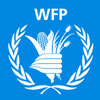 The World Food Programme (WFP) has been providing food assistance to the Palestinians since 1991.
The World Food Programme (WFP) has been providing food assistance to the Palestinians since 1991.
UNICEF
 The United Nations International Children’s Emergency Fund (UNICEF) in the State of Palestine works to uphold the rights of children to access services and protection, from early childhood through to adolescence. Its objective is to ensure that every child in the Gaza Strip and the West Bank, including East Jerusalem, irrespective of background or circumstance, has an equal chance to fulfil their potential.
The United Nations International Children’s Emergency Fund (UNICEF) in the State of Palestine works to uphold the rights of children to access services and protection, from early childhood through to adolescence. Its objective is to ensure that every child in the Gaza Strip and the West Bank, including East Jerusalem, irrespective of background or circumstance, has an equal chance to fulfil their potential.
Upholding International Law
ICJ
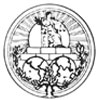 In its landmark Advisory Opinion the International Court of Justice (ICJ) found the presence of Israel in the Occupied Palestinian Territory to be unlawful. Israel is under an obligation to end this presence as rapidly as possible and make reparations for damages.
In its landmark Advisory Opinion the International Court of Justice (ICJ) found the presence of Israel in the Occupied Palestinian Territory to be unlawful. Israel is under an obligation to end this presence as rapidly as possible and make reparations for damages.
UNRoD
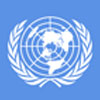 The United Nations Register of Damage Caused by the Construction of the Wall in the Occupied Palestinian Territory (UNRoD) was established by the General Assembly following the ICJ Advisory Opinion.
The United Nations Register of Damage Caused by the Construction of the Wall in the Occupied Palestinian Territory (UNRoD) was established by the General Assembly following the ICJ Advisory Opinion.
Conducting Research, Building Capacity
ESCWA
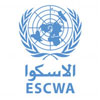 The Economic and Social Commission for Western Asia (ESCWA) inter alia, publishes reports on the economic and social impact of the Israeli occupation and settlements on the Palestinian people.
The Economic and Social Commission for Western Asia (ESCWA) inter alia, publishes reports on the economic and social impact of the Israeli occupation and settlements on the Palestinian people.
UNCTAD
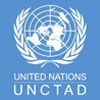 The work of the United Nations Conference on Trade and Development (UNCTAD) on the Palestinian economy is centred on research, analysis, and technical cooperation.
The work of the United Nations Conference on Trade and Development (UNCTAD) on the Palestinian economy is centred on research, analysis, and technical cooperation.
Informing the Public
DGC
 As part of its special information programme on the question of Palestine, the Department of Global Communication organises the annual International Media Seminar on Peace in the Middle East. A training programme for young Palestinian journalists provides hands-on skills training as well as access to UN officials and diplomats.
As part of its special information programme on the question of Palestine, the Department of Global Communication organises the annual International Media Seminar on Peace in the Middle East. A training programme for young Palestinian journalists provides hands-on skills training as well as access to UN officials and diplomats.
For more information: The question of Palestine and the United Nations


